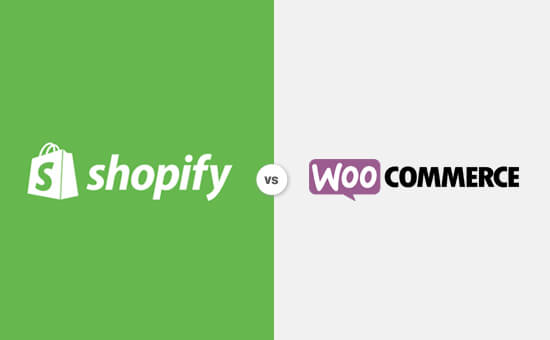Comparing Shopify vs WordPress
Which CMS to use when building and maintaining a website?
So you have probably been wondering what are the significant differences between producing an e-commerce website in either Shopify and WordPress?
The following reviews these two CMS’s (Content Management Systems) which are two of the more popular in New Zealand, with WordPress making up a huge one-third share of the New Zealand market.

SHOPIFY
Shopify launched in 2004 and was basically designed to allow sellers with no web development experience to create their own website. It is a relatively simple platform to navigate and to get that initial foothold in the online selling world.
Those with the necessary knowhow such as web developers and whoever else willing to learn are able to explore beyond the basic templates (basically dictating the look and layout of your website) offered by Shopify. This is achieved by way of styling (CSS) and display (HTML) modifications should a more specialised website be required.
What often attracts sellers to Shopify is the initial cost. Websites can be created for free and you only start paying when the website goes live. The Basic Shopify option starts from $47 NZD (being $29 USD on 23 May 2020) per month and this will allow you to list an unlimited amount of products. The top on the line Shopify option is $490 NZD ($299 USD) per month and would only really suit those retailers that want to add third party shipping rates or reduce credit card transaction fees.
If you build with Shopify, you must also have you website hosted by Shopify. Having this caveat leaves you at the mercy of Shopify to an extent, meaning you will need to pay whatever Shopify charge in order to have an active website. The website is then hosted on Shopify servers and operates in the cloud, meaning you only need an internet connection to access your store.
Shopify have an App store where website builders can purchase plug-ins in order to implement additional features into a website, such as stock management, product reviews or blogs.
WORDPRESS
If a retailer decides to create a WordPress website, the Woo-Commerce plug-in will be the foundation that the online store will be built upon. This e-commerce extension can occur at any stage, meaning a website can go from one providing an online presence to be an online retailer at any stage of the websites life.
WordPress more so caters from those with some web design skills up to website developers. For the average person wanting to have a go at creating their online store with unlimited products, WordPress is slightly more complex than Shopify but by no means not an impossible task.
Cost wise, the core WordPress software is free and so is Woo-Commerce. Once installed, it provides the ability to fully customise a website to meet the exact requirements of an online store. A WordPress theme (free or some cost varying amounts) will need to be selected and from here, there is literally no limit to the options available within the platform.
WordPress offer thousands of plug-ins and extensions that are often needed in a Woo-Commerce for the website to be fully functional depending how tweaked you need it.
WordPress allows websites to be self-hosted, meaning they can be hosted with any provider anywhere in the world. The competitive website hosting market allows you to shop around to find the provider you feel most comfortable with at the price you consider within your price range. The website is hosted on your providers server and like Shopify runs in the cloud.
Given the vast array of hosting options, two hosting plans will get reviewed here. OpenHost is a New Zealand based hosting service with their plans ranging from $8 per month (Starter) to $27 per month (Ultimate). The premier WordPress hosting service is WP Engine with their Starter plan from $41 NZD (being $25 USD on 23 May 2020) per month up to their Premium plan from $604 NZD (being $368 USD on 23 May 2020) per month.
Summing up the two…
So “cut to the chase already” I hear you say, which one is better? What should I use to get my website built? Both are responsive friendly, (meaning they will look good on a computer, tablet and phone) and both will ultimately get you out in the market place retailing your products online.
On the whole and weighing all factors up, we believe WordPress is better simply due to the level of customisation that’s available. This means you can ultimately built a better looking and more functional website given the right person with the relative skillset is managing the project. The availability of themes and extensions are greater and given an aesthetically pleasing website is critical it’s a determining factor. The sheer number of options available extends to hosting with WordPress allowing choice in where you want your website hosted.
It’s safe to say a WordPress based e-commerce store may generally cost more, but this simply reflects the likely involvement of a website developer and their involvement in various levels of customisation options that are available and usually always implemented.
